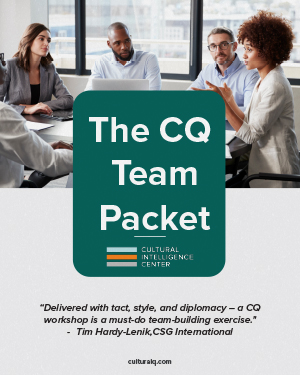As a professional whose career matured on the cusp of the 21st century, I witnessed the goliath effects of globalization, the internet, and the forever integrated markets. It took me a while to realize that effective leadership is not a one-size-fits-all.
Early in my career, and after several years holding a management and leadership role, I thought I had figured out what it takes to be an effective leader. “It must be consistency in my approach.”, I thought every time I interacted with my team members.
It wasn’t until sometime later I learned about situational leadership. At that point, I was leading increasingly diverse, globally distributed teams plus senior leaders who came with different experiences, skills, needs, and expectations. I began flexing my leadership style to meet the varying needs of my team members, but still had no true sense that culture might also matter.
Culture not only mattered to my leadership strategy, it was vital
I still remember the project that truly shifted my understanding of leadership in a culturally diverse context. I was working with team members dispersed between Vancouver, Canada, and St Petersburg, Russia. The team in Russia needed a drastically different leadership approach than the one in Canada; it was a pivotal moment in understanding that situational leadership travels. For me to be effective, I needed to approach things differently and challenge my own assumptions about what it meant to be an effective leader.
The diverse needs of my team members impacted the whole workflow; the way we communicated, how we shared and received information, provided continuous feedback, assigned tasks, and how we measured and reported progress. For example, the team in Vancouver expected me to behave more as a peer, asking them smart questions and giving freedom on how to achieve desired outcomes when possible. Conversely, the team in Russia believed a great boss should have smart answers to their questions, and should also provide plenty of context and clarity on how the work should be done. Members of the Vancouver also often appreciated being singled out for praise in a group setting such as a team meeting, but for many of our Russian colleagues this behavior was embarrassing and unwanted. They preferred me to acknowledge their team’s accomplishments, not just their own efforts or individual contributions.
The more research I did in cultural diversity and leading across culture, and the more conversations I had with people different from myself, the more excitement and interest I had in fully exploring these concepts. Improving my cultural knowledge was interesting, but it still needed translation at a team level. What should I do with this knowledge? How might it impact the way we work and relate to each other?
I needed to contextualize my cultural knowledge in the workplace
Finally, in 2018, I had my epiphany when I learned about the Cultural Intelligence (CQ) Framework. This was the exact toolset I had been seeking to elevate my global leadership skills and help me be more effective when working and relating in any culturally diverse context, whether global or domestic.
Diversity in the context of culture exists everywhere in business and in our personal lives. Although we might traditionally think of culture in terms of ethnic and national diversity, cultural diversity also spans gender differences and generational considerations, function roles and organizational cultures. Cultural differences exist in our homes, communities, cities, place of work, circle of friends, and so on. Culture can be thought of as ‘the way we do things around here’, wherever here might be.
I needed to become a Culturally Intelligent leader
This context we face related to the increasing diversity of cultures, generations and our workplace is one of the main reasons why leaders need to ask themselves; “How do we motivate, guide, and support our teams while respecting what they need and their cultural preferences? How can we best leverage the diversity of our teams and turn this into a competitive advantage for our business?”
It brings me great happiness to say that thanks to my own CQ journey, I am now a partner and coach in helping leaders, individuals and teams develop their CQ in a quest to become more impactful and effective leaders and team members. I truly believe CQ can make the world a better place.
